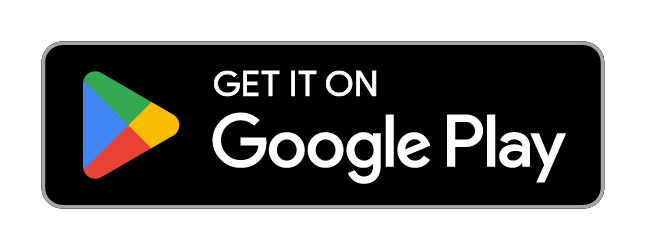Here’s something most players don’t realize: PUBG Mobile’s platform segregation isn’t just a simple filter—it’s one of the most sophisticated fair-play systems in mobile gaming. I’ve been covering this space since the policy launched in April 2018, and honestly? The evolution has been fascinating to watch.
The whole thing started because of community outcry. Within days of launch, mobile players were reporting encounters with opponents who had unnaturally precise aim and movement patterns. Turns out, keyboard and mouse users were dominating touch-screen players. Not exactly shocking, but it needed fixing.
For premium currency enhancement, BitTopup offers secure buy Unknown Cash legit services with competitive pricing and rapid delivery, ensuring uninterrupted gaming sessions across platforms.
PUBG Mobile Platform Segregation System Overview
How Matchmaking Segregation Works
The detection happens before you even see a loading screen. The system runs hardware and software fingerprinting that’s honestly pretty impressive—it identifies whether you’re on a native mobile device or running an emulator environment.
When emulator players queue up, they get that familiar Emulator Detected notice. That’s your confirmation you’re heading into emulator-only lobbies where everyone’s using PC setups. Squad matchmaking? Even stricter. One emulator user in your squad forces the entire team into emulator queues. No exceptions.
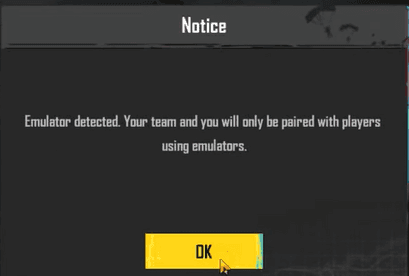
Current Policy in 2025
Zero tolerance. That’s the current stance on Emulator Detection Avoidance—and the penalties reflect it. We’re talking 1-10 year bans for players caught trying to bypass the system. The monitoring is real-time now, scanning for bypass attempts through input patterns, performance metrics, and software signatures.
GameLoop remains the only officially supported emulator. Makes sense, considering Tencent developed it specifically for PUBG Mobile compatibility.
Regional Implementation Differences
Here’s where it gets interesting (and sometimes frustrating). Asian servers maintain robust emulator populations—queue times are reasonable, lobbies fill with real players. European and North American servers? Different story entirely. Smaller user bases mean longer waits and more bot-filled matches.
Middle Eastern servers report the most challenging conditions. When there aren’t enough emulator players online, you’re looking at lobbies packed with bots.
Emulator vs Mobile Gaming: Complete Comparison
Performance and Visual Quality
Let’s be honest—emulator gaming delivers superior visual fidelity. Higher resolution support, enhanced graphics processing, the works. GameLoop’s recommended specs (8GB RAM, GTX 660 graphics) significantly exceed what most mobile devices can handle. Translation? Reduced input lag, smoother animations, better visual clarity.
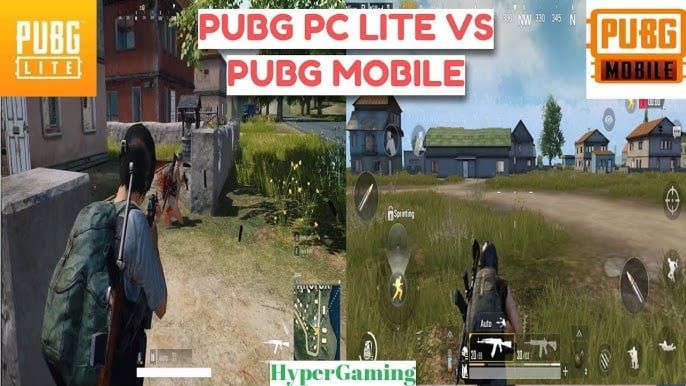
Mobile gaming has its advantages though. Optimized battery management, thermal regulation, no PC overheating issues during those marathon sessions.
Control Methods and Precision
This is where the segregation makes perfect sense. Keyboard and mouse provide substantial accuracy advantages—I’ve watched professional players demonstrate recoil control and target acquisition speeds that are simply impossible with touch controls.
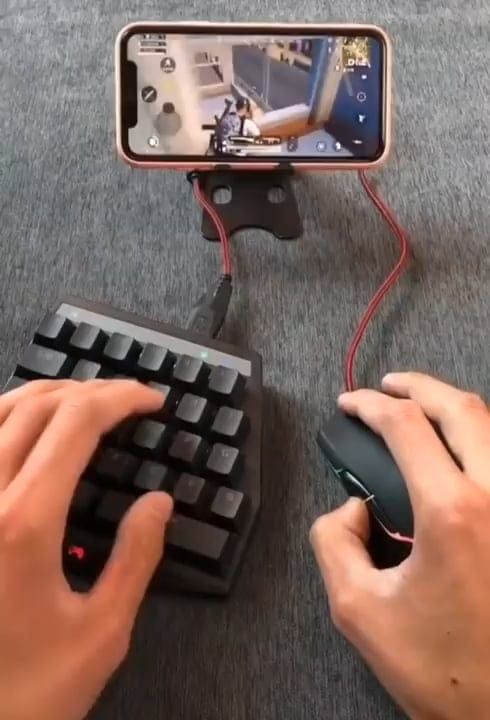
But mobile isn’t without its perks. Gesture-based actions, multi-touch capabilities, haptic feedback—these features don’t exist on PC platforms.
Hardware Requirements
Minimum emulator specs: Windows 7 64-bit, Core i3 processors, 3GB RAM. Recommended setup bumps that to 8GB RAM with dedicated graphics. Mobile requirements vary wildly, though flagship devices can deliver performance comparable to mid-range PCs.
Storage consideration: mobile consumes 2-3GB versus emulator’s 4-5GB (including virtualization overhead).
Detection System: How PUBG Mobile Identifies Platforms
Technical Detection Methods
The detection system uses multiple verification layers. Hardware fingerprinting examines device specs, screen resolutions, input configurations. Software fingerprinting analyzes running processes, system libraries, virtualization signatures.
Network analysis is particularly clever—it monitors connection patterns, latency characteristics, even packet structures that differ between mobile and PC environments.
Behavioral Pattern Analysis
Input pattern analysis catches mouse movements, click timing, keyboard usage that’s impossible on touch devices. Performance monitoring tracks frame rates and processing speeds that exceed mobile limitations.
The system even analyzes gameplay behavior—movement patterns, camera control, reaction times characteristic of different input methods.
Hardware Fingerprinting
Device fingerprinting creates unique identifiers based on hardware components and system configurations. Emulator fingerprints include virtualization signatures and host specifications. Mobile fingerprints incorporate device-specific identifiers and manufacturer signatures unique to physical devices.
BitTopup provides reliable PUBG UC legit store online services with secure payment processing and instant delivery, supporting both mobile and emulator players with competitive pricing and excellent customer service ratings.
What Gets You Flagged: Common Triggers
Emulator-specific Behaviors
Using unofficial emulators or modified GameLoop installations? That’s an instant flag. Rapid input sequences impossible on touch devices—simultaneous multi-key combinations, precise mouse movements—generate behavioral alerts.
Performance anomalies are another trigger. Sustained high frame rates, advanced graphics settings, processing beyond mobile limitations all activate automated detection protocols.
Suspicious Input Patterns
Mouse movement characteristics tell a story. Pixel-perfect precision, consistent acceleration curves, mechanical timing—these differ dramatically from touch inputs. Keyboard shortcuts unavailable on mobile interfaces generate immediate flags.
Multi-tasking behaviors like alt-tabbing or window switching create PC-specific detection signatures that are pretty much impossible to hide.
Performance Anomalies
Sustained maximum graphics with consistent high frame rates exceed mobile capabilities. The system measures processing speeds, loading times, rendering capabilities to identify PC-based gameplay.
Memory usage patterns and resource allocation differ significantly between native mobile and emulated environments—another detection vector.
Approved Emulators and Official Support
GameLoop (Official Emulator)
GameLoop is the gold standard—the only officially endorsed platform developed specifically for PUBG Mobile. Installation requires Windows 7+ 64-bit with minimum 3GB RAM (though 8GB is recommended for optimal performance).
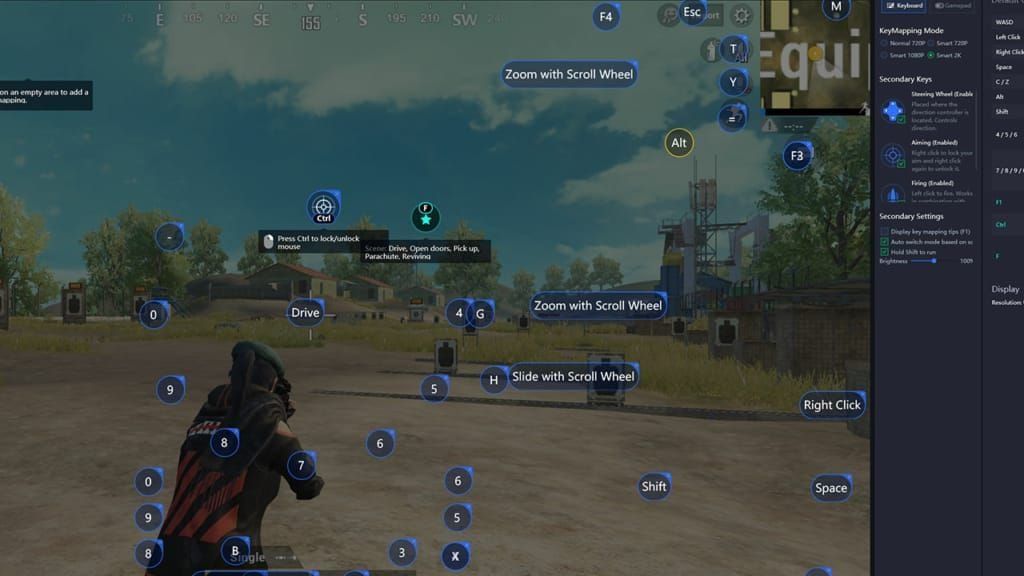
Configuration involves enabling BIOS virtualization, allocating appropriate RAM, and adjusting graphics for performance balance.
Supported Third-party Emulators
BlueStacks offers good graphics quality but demands significant resources and may trigger detection issues. LDPlayer provides lightweight performance for lower-end PCs but includes advertisements with reduced compatibility.
NoxPlayer supports Windows/Mac with clean interfaces but reports occasional instability. None of these have official endorsement.
Installation Guidelines
Download from official sources—avoid modified versions at all costs. Enable BIOS virtualization, update graphics drivers, configure Windows performance settings properly.
Install PUBG Mobile through official app stores within emulators. APK files or modified clients trigger anti-cheat systems.
Matchmaking Impact and Queue Times
Emulator-only Lobbies
Here’s the trade-off: emulator pools contain significantly fewer players than mobile queues. This causes extended wait times and bot-filled matches, especially outside Asian servers.
Queue times exceed 3-4 minutes during off-peak hours, with some regions experiencing much longer delays. When insufficient players exist, the system creates bot-heavy lobbies—not exactly the competitive experience most players want.
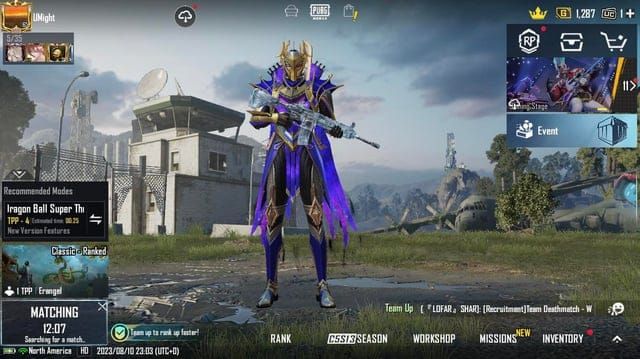
Queue Time Comparisons
Mobile matchmaking completes within 30-60 seconds across most regions, benefiting from massive player populations. Emulator times range from 2-5 minutes during peak hours to 10+ minutes off-peak.
North American and European servers experience the longest delays. Middle Eastern servers report challenging conditions with frequent timeout issues.
Ranking System Differences
Ranked progression operates identically across platforms, though emulator players face more challenging opponents due to concentrated skilled populations. Rank decay applies equally—2 RP daily for Bronze/Silver up to 7 RP daily for Master tier.
Skill-based matching considers performance metrics beyond visible ranks, so don’t expect easy climbs just because you’re on emulator.
Competitive Scene and Tournament Rules
Official Tournament Regulations
Professional competitions explicitly prohibit emulator usage—approved mobile devices only. Violations result in immediate disqualification, prize forfeiture, and potential future bans.
Device verification includes hardware inspections, software audits, and real-time monitoring during events. They don’t mess around.
Pro Player Platform Preferences
Professionals exclusively use high-end mobile devices with enhanced cooling, high refresh displays, and specialized accessories. Training focuses on touch control mastery with mobile input optimization coaching.
Equipment standardization includes approved device lists, peripheral restrictions, and specific software requirements.
Fair Play Enforcement
Competitive anti-cheat employs enhanced detection with real-time monitoring, behavioral analysis, and hardware verification. Penalties include disqualification, ranking deductions, and temporary or permanent bans.
Appeal processes require substantial evidence with low success rates due to enhanced detection accuracy.
Platform Switching and Account Safety
Safe Switching Practices
Account synchronization operates seamlessly using Google, Facebook, or Twitter authentication. Progress, cosmetics, and achievements transfer automatically between platforms.
Moderate switching frequency avoids security flags—daily changes may trigger verification processes. Login consistency prevents geographic or platform change security reviews.
Account Linking Considerations
Primary linking through stable services ensures consistent access. Facebook and Google provide reliable synchronization with robust security features. Guest accounts create synchronization risks and potential data loss.
Two-factor authentication enhances security but adds verification steps to the login process.
Data Synchronization
Progress including rank, cosmetics, achievements, and currency balances transfers seamlessly. Synchronization delays occur during maintenance or high-traffic periods but resolve within minutes.
Regional differences may impact timing and availability during transitions.
Troubleshooting and Appeals Process
False Detection Issues
False positives occasionally affect legitimate GameLoop users, especially during updates. Common triggers include fresh Windows installations, hardware changes, or conflicting software.
Documentation should include system specs, installation timestamps, and gameplay recordings demonstrating legitimate usage.
Appeal Submission Process
In-game appeals through Settings > Customer Service average 48-hour response times. Email appeals require User ID, platform details, ban dates, and supporting evidence.
Appeal success rates reach 70% for legitimate false positives with quality evidence—not terrible odds if you’re genuinely innocent.
Prevention Strategies
Official software usage eliminates most risks—GameLoop represents the safest choice. System maintenance including antivirus scans, driver updates, and clean installations prevents false triggers.
Behavioral consistency with regular patterns and consistent logins reduces security flag risks.
Future Updates and Policy Changes
Upcoming Detection Improvements
Enhanced 2025 capabilities include improved behavioral analysis, advanced fingerprinting, and machine learning integration. Cross-platform developments may identify unauthorized mobile peripherals.
Real-time monitoring provides faster response times and more accurate identification—the system keeps getting smarter.
Community Feedback Integration
Player feedback drives detection accuracy improvements and appeal process enhancements. Transparency initiatives may include regular reports, policy clarifications, and improved community communication.
Regional adaptation addresses server-specific issues including queue optimization and sensitivity adjustments.
Frequently Asked Questions
Does PUBG Mobile completely separate emulator and mobile players? Absolutely. Strict segregation has existed since April 2018. Emulator users only match with other emulator players. If any squad member uses an emulator, the entire team gets forced into emulator pools.
Can you get banned for using an emulator? Official emulators like GameLoop are perfectly fine. Modified emulators or attempts to bypass detection constitute Emulator Detection Avoidance—that’s a 1-10 year penalty.
How does the detection system work? Multiple methods: hardware fingerprinting, software analysis, input pattern recognition, performance monitoring. The system examines specifications, processes, mouse movements, and processing capabilities that exceed mobile limits.
What emulators are officially allowed? GameLoop is the only officially endorsed emulator by Tencent. Others like BlueStacks, LDPlayer, and NoxPlayer function but lack official support with higher detection risks.
Do emulator players have advantages? Yes—superior mouse aiming precision, better visual clarity, enhanced performance, keyboard shortcuts. This justifies the segregation, ensuring mobile players compete against similar touch controls.
Why are emulator queue times longer? Significantly fewer emulator players create 2-5 minute peak waits and 10+ minutes off-peak. Mobile players find matches within 30-60 seconds due to larger populations.















